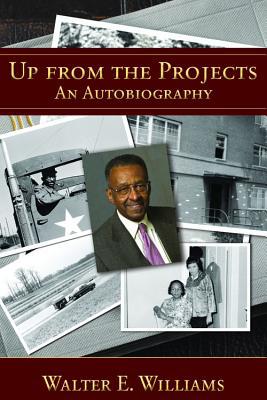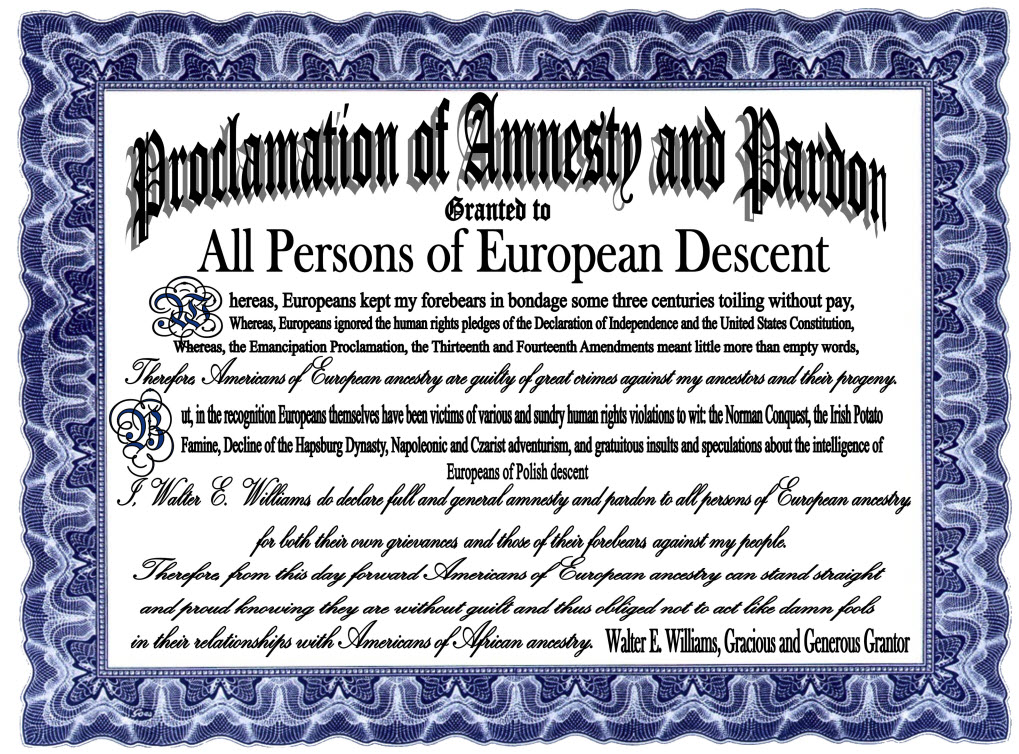by Dan Mitchell, with permission.
One of America’s leading public intellectuals, Walter Williams, has passed away.
In 2014, I shared a teaser for Suffer No Fools, a video biography of his life. To commemorate the life of this great man, here’s the full video.
I first got to know Walter when I was a Ph.D. student at George Mason University in the 1980s, where my then-wife was his research assistant, but I was fortunate to become a friend later in life when I got to become a member of the “Politically Incorrect Boys Club” with Walter, Ed Crane, and Richard Rahn. This meant lots of fun dinners featuring everything from juvenile humor to grousing about the foolishness of ever-expanding government.
I had an opportunity to reminisce about Walter for WMAL this morning, and you can hear my remarks by clicking here.
But there’s so much more to say. When I learned yesterday of Walter’s death, I wondered what sort of tribute I should write, especially since so many thoughtful essays already have been published (Don Boudreaux, Thomas Sowell, Veronique de Rugy, Alex Tabarrok, Mark Perry, and Nick Gillespie, to list just a few).
Then I recalled a left-leaning friend once telling me that Walter must be some sort of “Uncle Tom” because he opposed racial preferences and the welfare state.
This statement struck me a ludicrous because Walter was a take-no-prisoners troublemaker who got in trouble as a young man (everything from arrests to a court martial) because he refused to tolerate racism.

Here are some excerpts from his must-read autobiography, Up from the Projects, staring with this passage about his time at Fort Stewart after getting drafted.
Numerous forms of troublemaking made me unpopular with many of the soldiers, including black ones. Some warned that was going to get into a lot of trouble, to which I’d flippantly reply, “What kind of trouble? Is somebody going to paint me black and send me to Georgia?”
And here’s some of what he wrote about his assignment to South Korea.
We had been told to fill out forms that contained vital personal information such as blood type, race, religion, next of kin, etc. …I had checked off “Caucasian.” A warrant officer told me I had made a mistake. …He wanted to know why I would say Caucasian when I was actually a Negro. “I’m not stupid,” I replied. “If I checked off ‘Negro,’ I’d get the worst job over here.
Here’s a passage from his time as a Ph.D. student at UCLA.
My fellow students were in awe of someone who’d challenge Professors Alchian and Hirschleifer as I did. One notable challenge occurred when Professor Alchian said to me in class, “Williams, I bet you’re against discrimination.” I replied that no, I favored discrimination. Smiling, he asked whether that included racial discrimination. “Yes,” I said. “I practiced it a lot when I was dating.”
I should point out that while he believed in freedom of association (including the right to discriminate), Walter also noted that capitalism was the best way of punishing bad types of discrimination.
He appreciated that his professors didn’t relax their standards because of his race.
Flunking economic theory the first time around, I later realized, did have a benefit. It convinced me that UCLA professors didn’t care anything about my race. …The university’s economics professors weren’t practicing affirmative action with me. …Sometimes I sarcastically, perhaps cynically, say that I’m glad I received virtually all of my education before it became fashionable for white people like black people. …I encountered back then a more honest assessment of my strengths and weaknesses.
Walter also had the self-confidence to deal with white mistakes, such as this anecdote from when he lived in a rich suburb of D.C.
Being among the very few blacks in Chevy Chase taught me a lesson about racial relationships. Living in a corner house…prompted a Saturday chore of picking up trash that people discarded from passing cars. One Saturday, while doing that, an elderly white neighbor approached me to ask me whether, when I completed my tasks, I would be interested in working that afternoon in his yard. I told him very nicely that I would be spending that afternoon putting the final touches on my Ph.D. dissertation. The man’s face turned red with embarrassment and he apologized profusely. Some blacks might have been insulted and charged the man with racism. But I realized that the main was a Bayesian…, meaning that if a black person was spotted in Chevy Chase, picking up trash, the overwhelming probability was that he was a worker as opposed to a homeowner. Playing racial odds doesn’t make one a racist.
Many years later, he wrote a very insightful column on racial and sexual profiling.
Here’s a final excerpt showing how he enjoyed shocking people.
At the leftist reception, …the questioner asked, “How do you feel about the enslavement of your ancestors?” They were all shocked by my response… I started off by saying that slavery is one of the most despicable abuses of human rights. …But I went further to tell them that I, Walter E. Williams, have benefited enormously from the horrible suffering of my ancestors. …my wealth and personal liberties are greater having been born in the United States than in any African country.
Indeed, Walter relished the opportunity to tease his white friends and colleagues, often granting them a pardon for their skin color.

The bottom line is that Walter was a man, not a victim. He fought and achieved.
Since I’ve cited so many of his columns over the years, it would be impractical to list everything. But I definitely recommend the moral arguments he made in videos on capitalism and profits.
P.S. I also can’t resist suggesting that you watch Walter’s conversation with his Nobel Prize-winning colleague, Jim Buchanan.